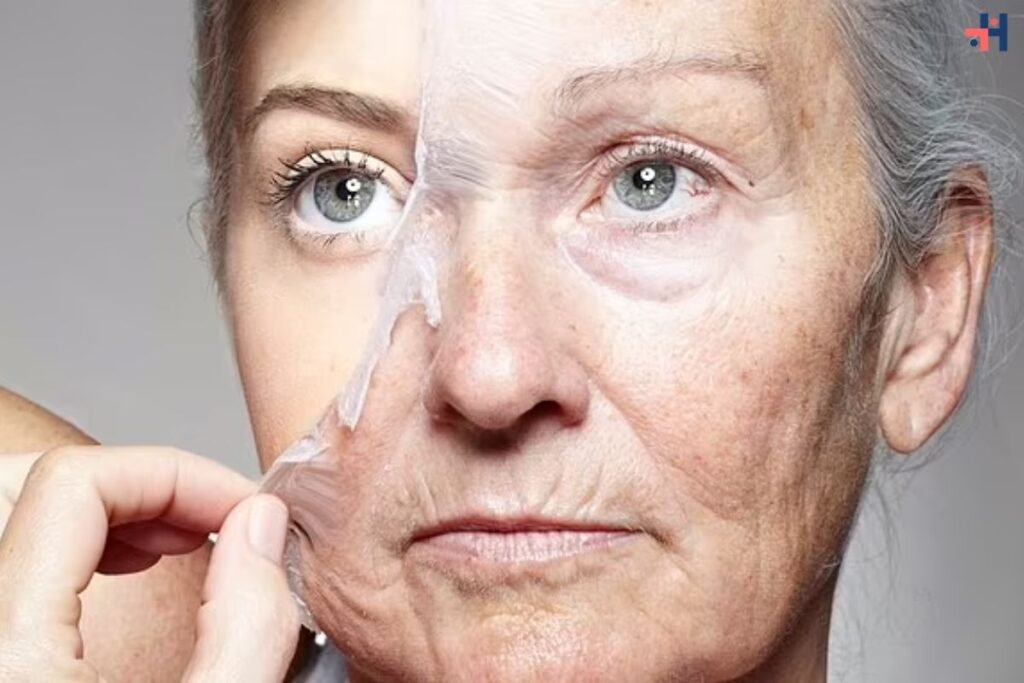In a phenomenon sweeping social media, concerns are raised over the apparent hastening of accelerated ageing in young people, sparking discussions about potential health implications. As influencers and researchers delve into this intriguing topic, a complex web of factors emerges, shedding light on a troubling trend.
The Viral TikTok Trend
The emergence of the notion that Generation Z is “ageing like milk” has captured widespread attention on platforms like TikTok. Influencers like Jordan Howlett draw attention to the perceived disparity between the youthful appearance of Millennials and the seemingly accelerated ageing in young people of their younger counterparts.
Recent revelations from an international cancer conference lend credence to these concerns, linking certain cancers, particularly lung, gastrointestinal, and uterine cancers, to evidence of accelerated ageing at the cellular level. This growing body of research highlights the impact of lifestyle, environmental factors, and stress on biological ageing.
Generational Risk Trends
Researchers point to a concerning trend: successive generations born after 1965 exhibit an increased risk of accelerated ageing in young people and, consequently, a heightened susceptibility to cancer and other chronic diseases. With Generation Z entering adulthood amidst this backdrop, questions arise about their long-term health prospects.
The rise of early-onset cancers among younger demographics raises alarm bells within the scientific community. Data from the UK Biobank underscores the correlation between accelerated biological ageing and heightened cancer risks, particularly for lung, gastrointestinal, and uterine cancers.
Implications Beyond Cancer
Accelerated ageing in young people isn’t confined to cancer risks alone. Growing rates of heart attacks and type 2 diabetes among younger populations paint a broader picture of deteriorating health outcomes. Factors such as obesity, sedentary lifestyles, and environmental pollutants contribute to this troubling trend.
Accelerated aging may be linked to rising cancer rates in younger people
Dietary and Lifestyle Influences
Dietary patterns characterized by processed foods high in fat, sugar, and salt, coupled with rising obesity rates, exacerbate the problem. Research suggests that diets rich in fish, vegetables, and legumes may offer protective benefits against early-onset cancers, contrasting with trends observed in high-income countries.
Obesity emerges as a significant contributor to accelerated ageing in young people and the onset of chronic diseases. The exponential rise in obesity rates, particularly among children, underscores the urgency of addressing lifestyle and dietary factors driving this epidemic.
Interconnected Health Challenges
The interconnected nature of health challenges facing younger generations underscores the need for comprehensive interventions. From genetic predispositions to environmental influences, a multitude of factors converge to accelerate biological ageing and drive disease progression.
As we confront the complex interplay of factors contributing to accelerated ageing in young people and declining health outcomes among young people, proactive measures are essential. From promoting healthier dietary habits to addressing environmental pollutants, concerted efforts are needed to safeguard the well-being of future generations.
The narrative of accelerated ageing in young people among young people transcends social media trends, underscoring profound shifts in health demographics. By unraveling the intricate web of influences driving this phenomenon, we can chart a course toward healthier futures for generations to come.










